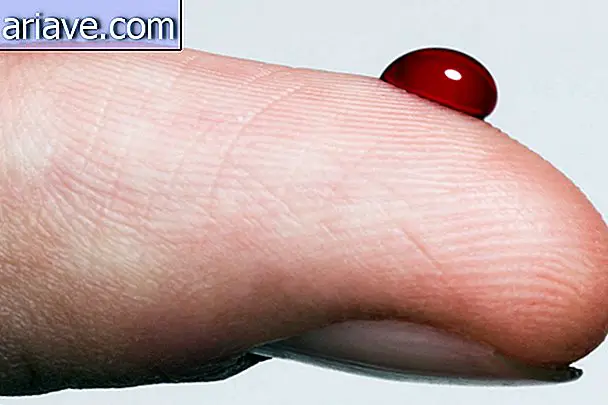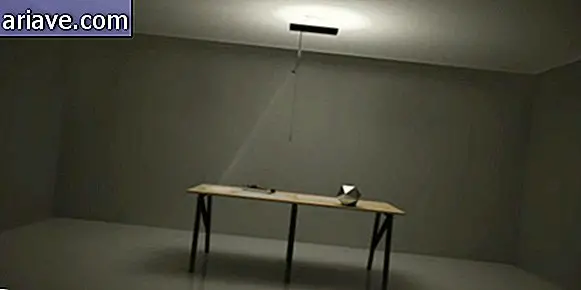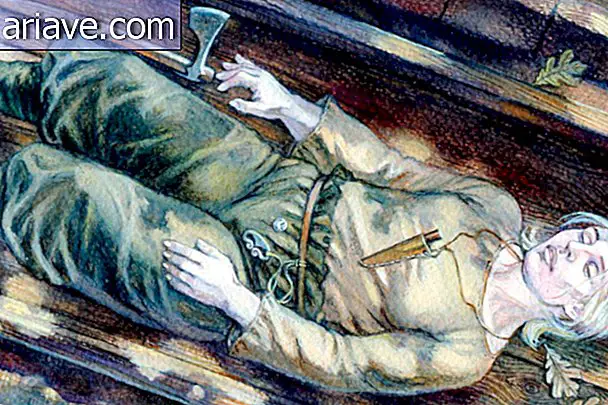Debate: Would you clone your pet?
The affection humans and dogs share with each other can be so great that many people would not hesitate to say that their greatest loves are their pets. Science has proven that only exchanging glances can be captivating to the point of making the relationship compare with that of a mother with her baby. Even love between owners and their dogs is the subject of an essay that we have published here in Mega Curioso and you can check it out by clicking here.
But what if this love of the pet is so great that it leads someone to clone it so as not to miss it when it's time to leave? It has been known for some time that animal cloning is possible, and that of dogs in particular has already addressed the controversial case of a woman who won the right to clone one of her animals in a contest in England.

Now, the NPR website featured a story about a couple of US veterinarians who, a few years ago, decided to shell out $ 100, 000, about $ 390, 000 at the current rate, to clone their beloved dog. But the issue, rather than showing the couple's beautiful relationship with their beloved pet, sheds light on an ethical debate around the issue. Check out how this story went.
Melvin the superhuman dog
The couple Phillip and Paula Dupont live and maintain a veterinary clinic in the city of Lafayette, Louisiana. It was there that, for years, they had cultivated affection and love for the little dog Melvin, a mutt that, when born, was supposed to be a Catahoula Cur dog, but it turned out to be a mixture of other breeds impressing the couple by your intelligence and your charisma.
At first, Phillip said he did not know what to do with the dog, after all he did not come the way they planned. Gradually, however, Melvin conquered the vets with his adventures and became “the best dog they ever had, ” Phillip himself argued.
Among the past stories with the mascot, one was featured on the NPR website. Once, when the couple lost their car key, Melvin found it lost in the garden. “He listened to us. You could talk to him and swear he understood. It was weird, ”reported Phillip Dupont.
The advancing age and the clones
The idea of cloning the beloved friend came from the Duponts when they began to notice traces of the dog's advanced age. They then contacted a laboratory in South Korea and sent Melvin's skin cells to be cloned. With the works of the scientists, a first puppy was born, but soon died due to some complications of its condition. On a second attempt, two puppies took revenge with health and were handed over to the Duponts.

It was just under two years before Melvin died. It was a difficult time for the couple, Phillip said, but the new puppies, Ken and Henry, helped them a lot to overcome it. They demonstrated personalities very similar to the original, and this was decisive for the pain of loss to diminish.
The process questions
Love is not only about cloning animals and, in this case, dogs. Several aspects rekindle the debate about this, especially all that can entail and all the animals involved in such a process. For example, there are several dogs that serve as egg donors, surrogates, among others.
Case Western University bioethicist Insoo Hyun recalls that it is important to pay attention to the health and welfare of these animals as they will undergo surgical procedures. In addition, the procedure often fails, and several specimens may be lost just to produce a clone. "In my opinion, there must be other ways to spend $ 100, 000 if you really care about the animals, " Hyun said.

Another point that raises a question about the process is whether it is really worth doing, as the clone is just a genetic copy of the original. That is, personality, way of acting, tricks, among other things will only be shaped by external factors such as environment, training and coexistence of each animal. According to Hyun, these points can never be replicated. Thus, it is even possible to be disappointed with the “new versions” of your animals, while they may not behave as expected.
The defense
About the South Korean cloning clinic, Sooam Biotech, the Duponts said they could verify that all dogs involved in the process are very well treated and installed on site. According to them, the lab team reported that, after recovering from the procedures, the animals are sent for adoption. According to the NPR website, the company Sooam Biotech, when contacted, did not deny, but also did not confirm this information.

Regarding the traits of young dogs, Melvin's clones, the couple admitted that there are slight differences. Physically, it is the weight, since Henry is slightly heavier than Ken, and he has a smaller white band in the muzzle region. Other than that, they both look healthy and closely resemble the original dog's personality.
Another argument used by Phillip and Paula is that their intention is not to make multiple clones. The idea they always had is to be able to relive the moments of a special animal, which they claim to be much more valid than those people who abandon the puppies generated by their uncastrated animals. Unfortunately, the shelters remain crowded with animals abandoned by irresponsible owners.
........
And you, what do you think about this question? Would you clone your beloved pet if you had the opportunity, even if you had to spend about $ 390, 000? What if the investment was smaller? Be sure to share your arguments and your opinion in the comments!
If you were to clone your pet, why would you? Comment on the Mega Curious Forum











